What can you find in the archive of Cork Street Fever Hospital and Cherry Orchard Hospital?
 |
| Photograph of Cork Street staff in 1935 (CSFH/1/3/4/1) |
In cataloguing the archive, I have
divided it into eight series based on record type or subject. Within these
series records are further sub-divided and are arranged chronologically.
Administrative
papers is
a wide-ranging series which consists of a large quantity of material relating
to the management, provision of patient care, and day-to-day administration of Cork
Street and Cherry Orchard. This
series includes a remarkably complete run of minute books, which stretch from
the first meetings of the provisional managing committee in 1801 to 1961, interrupted
only by a gap of fourteen years between 1828 and 1842. Similarly annual
reports, which usually include medical reports, run from 1801 to 1964 with few
gaps. Reports of the Medical Superintendent date mostly from Dr C.J.McSweeney’s period in the position (1934-1953), and offer invaluable glimpses
into topics such as patient admissions and treatment, staffing, the state of
the hospital, medical equipment, and the weekly activities of the Medical
Superintendent. This section also includes reports of health authorities who
inspected Cork Street Fever Hospital, such as the Commissioners Appointed to
Inspect Charitable Institutions in Dublin in 1842. There is also a section of
extant records relating to hospital staff and students who trained at Cork
Street and Cherry Orchard, and a small amount of hospital correspondence.
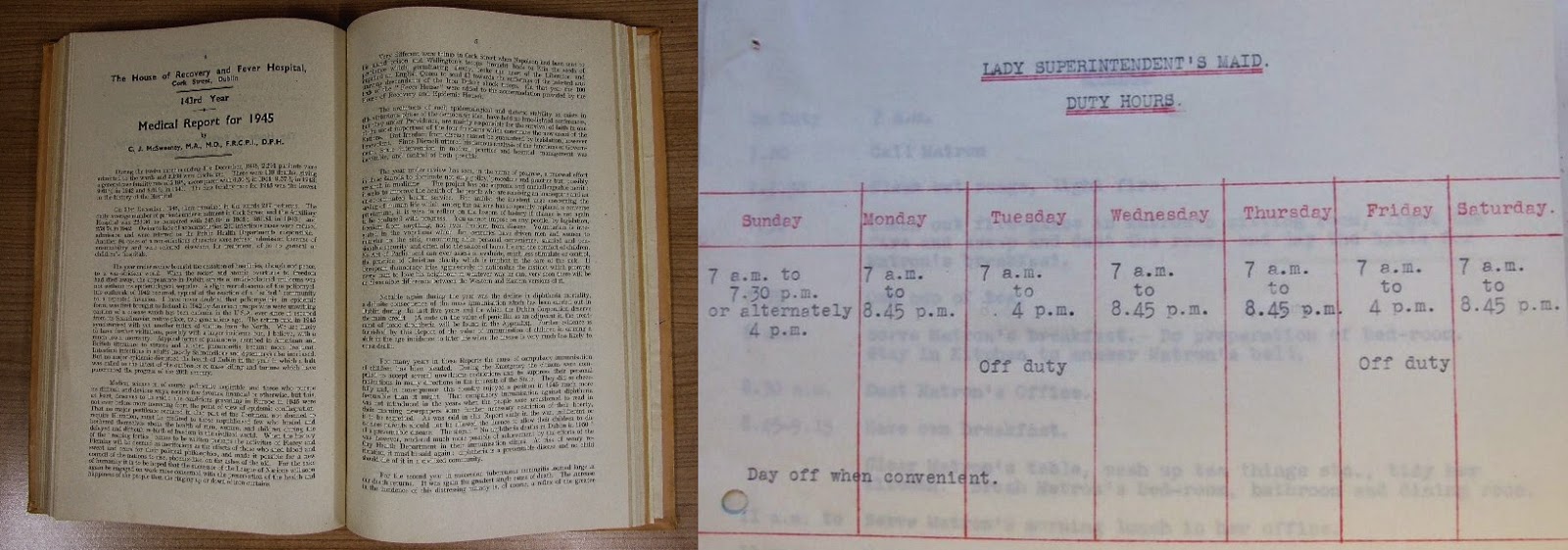 |
| Some records from the Administrative papers series: Medical Report for 1945 (CSFH/1/2/1/9) and sheet showing the duty hours of the Lady Superintendent's Maid in 19368 (CSFH/1/3/1/10) |
Hospital finances and domestic
supplies is a large series
of records ranging in date from 1857 to 1983. Records in this section reveal
the routine processes which underpinned hospital activities, and include day
books detailing particulars of goods received into Cork Street and Cherry
Orchard, consumption and cost ledgers, receipts and financial statements,
laundry records, cash books, and expenditure books. This series also includes a
run of day books from Vergemount Fever Hospital, Clonskeagh, the functions of which transferred to Cherry Orchard following its change from a hospital for infectious diseases to a hospital dealing primarily with care for the elderly.
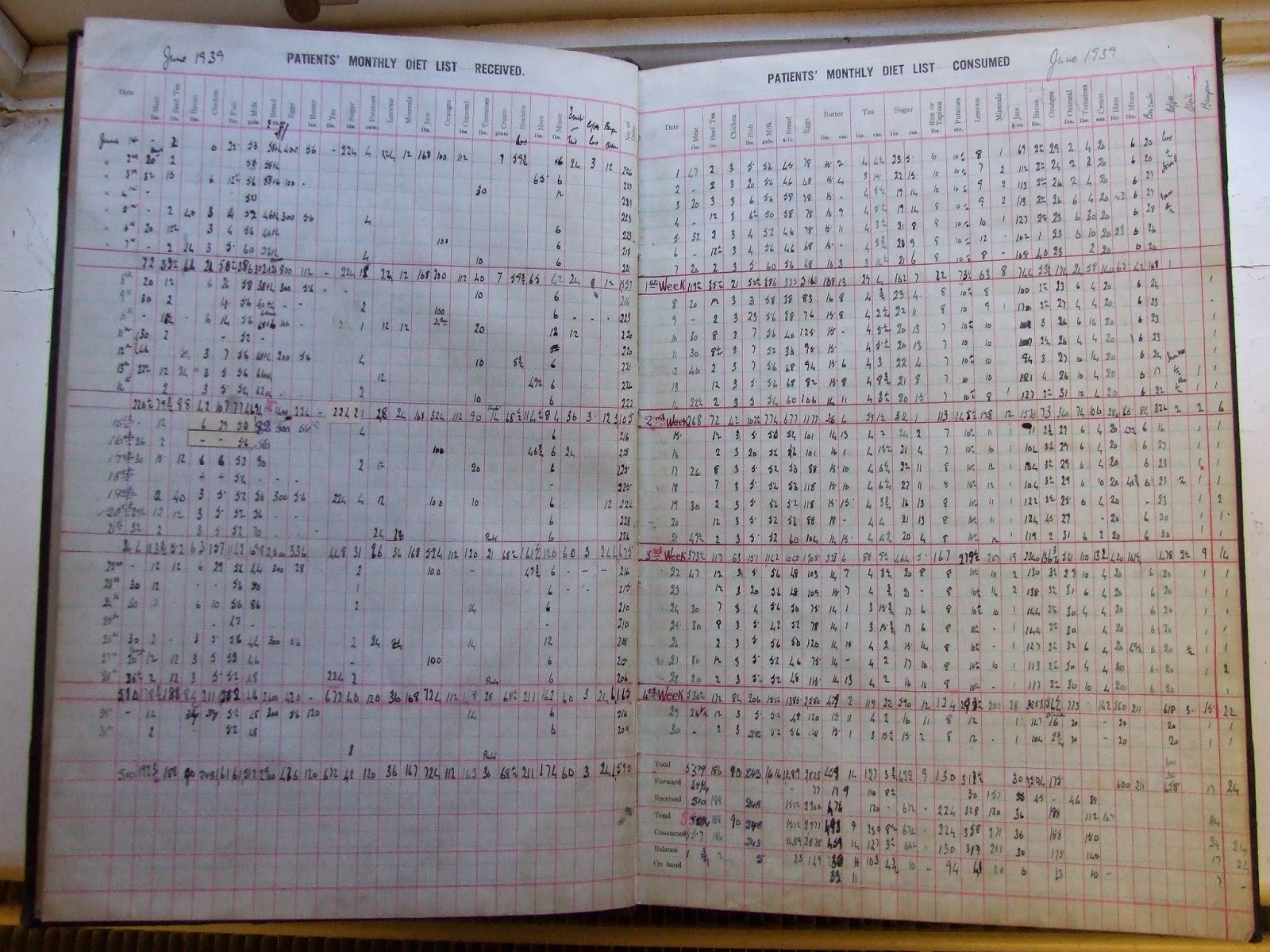 |
| Example of a record from the hospital finances and domestic supplies series - patients' monthly diet list (CSFH/2/8/7) |
A series of Medical Superintendents' papers consists of records relating to the
research and teaching roles of the chief physicians in Cork Street and Cherry
Orchard. There is also a large selection of journal articles, booklets,
articles, reports, and leaflets collected by Medical Superintendents on a
variety of topics relating to medical care, pharmaceutical products, infectious
disease, and the management and development of hospitals. Records in this section are particularly
plentiful for Dr C.J. McSweeney’s time as Medical Superintendent (1934-1953).
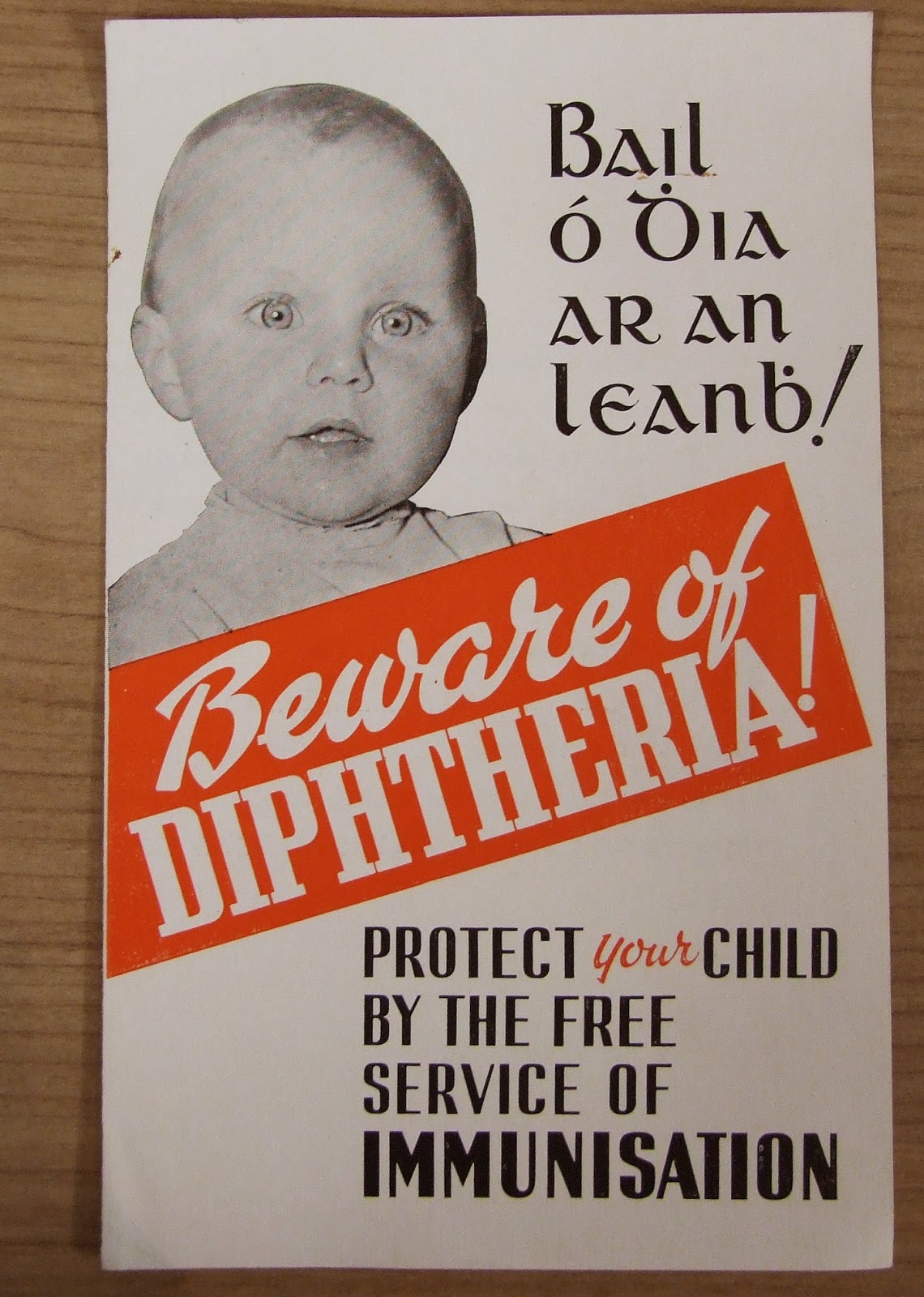 |
| A leaflet promoting the diphtheria immunisation campaign in the 1940s, received by Dr C.J. McSweeney: Medical Superintendents' papers series (CSFH/3/1/4/5) |
The patient
records series does not consist of complete sets of records, and there is a
notable absence of individual case files.
However this series does include a short run of patient registers
(1924-1948), and a small number of patient correspondence, consultants' books,
patient lists, discharge books, notification books, reports, and weekly
returns.
 |
Framed document in the patient records series which shows the number of available beds at Cork Street and its auxiliary hospital for convalescents at Beneavin, Finglas (CSFH/4/2/10)
|
The history
and events series includes scrapbooks of newspaper cuttings from the 1920
to the 1950s, and drafts of A Short History of the House of Recovery and Fever Hospital (1945) and Cherry Orchard Hospital, 1953-2003. This section also includes a number of files relating to Cherry Orchard’s Golden Jubilee celebration
events held in September 2003, November 2003, and February 2004.
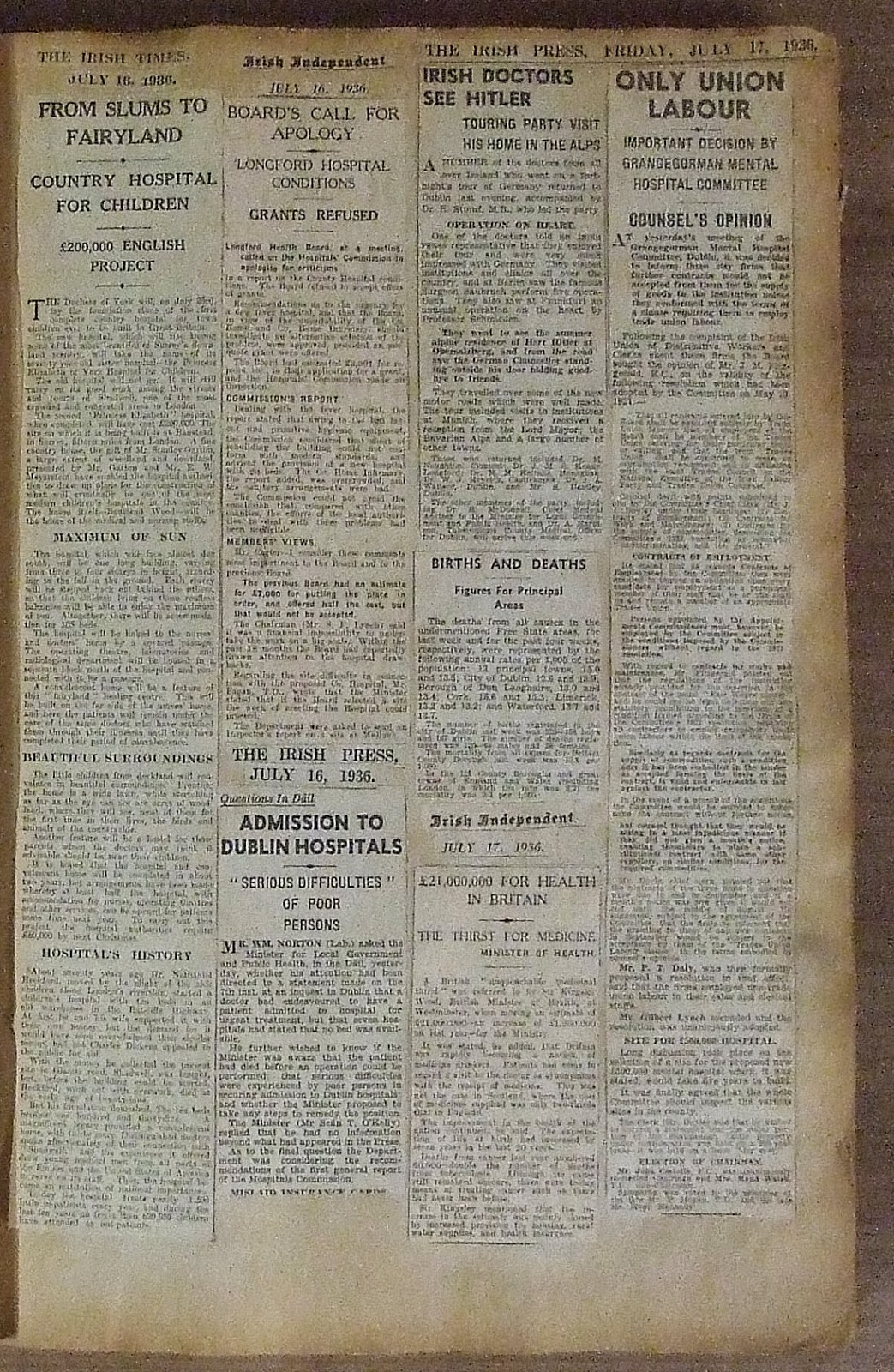 |
| Page of scrapbook of newspaper cuttings, from the history and events series (CSFH/5/1/1) |
The majority of material in hospital buildings and premises series
relates to the planning and construction of the hospital at Cherry Orchard
(opened 1953), and includes a number of beautiful architectural drawings by
Alan Hope.
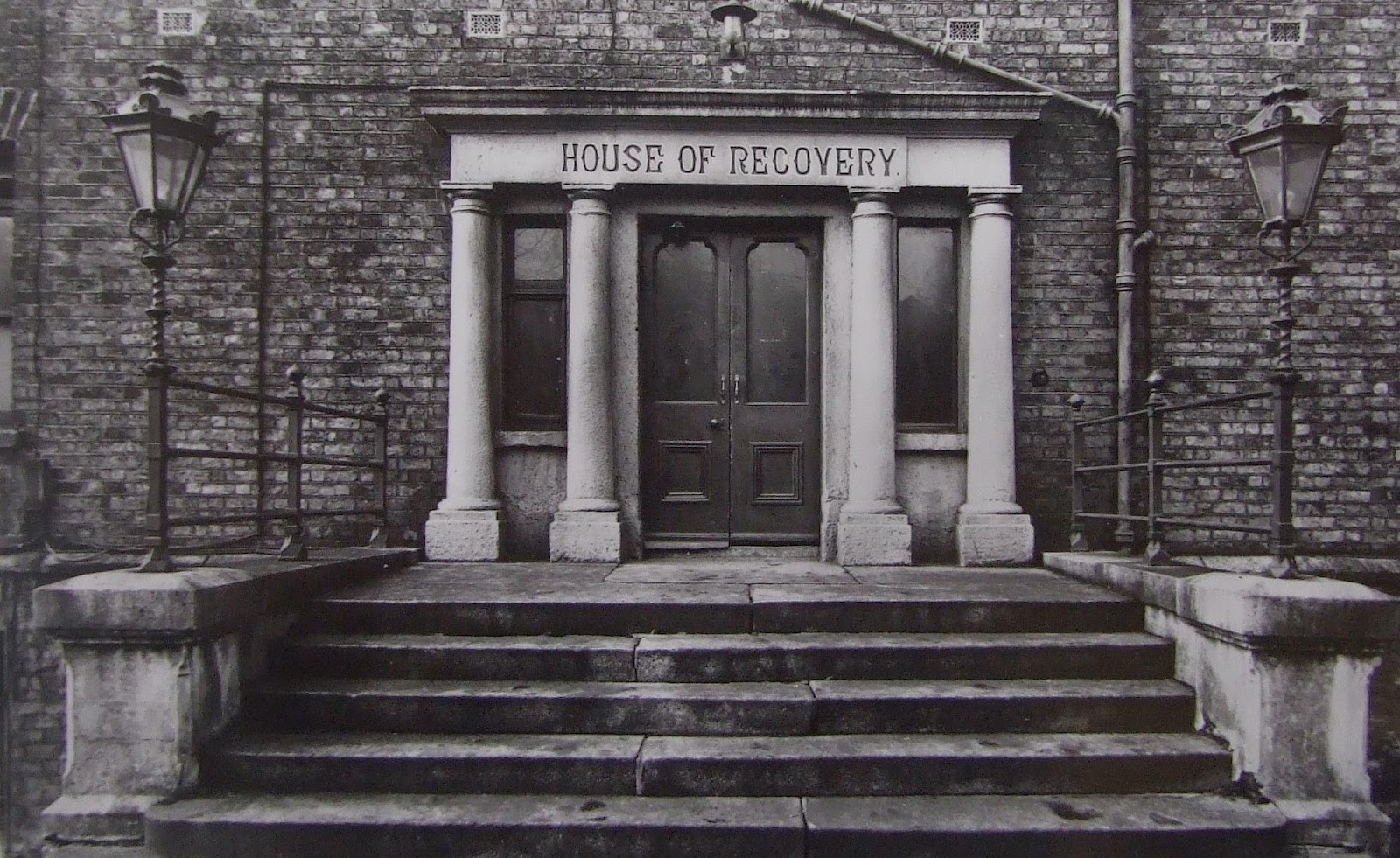 |
| Photograph of the original entrance to Cork Street Fever Hospital, in the hospital buildings and premises series (CSFH/7/1/6) |
A series of records relates to Local
Government inquiries held in 1937 and
1944; the former into the proposed abolition of the position of Pathologist in
Cork Street Fever Hospital, and the latter into an array of alleged
malpractices. The latter inquiry resulted in the abolition of the hospital
board for four years, and a minor political scandal.
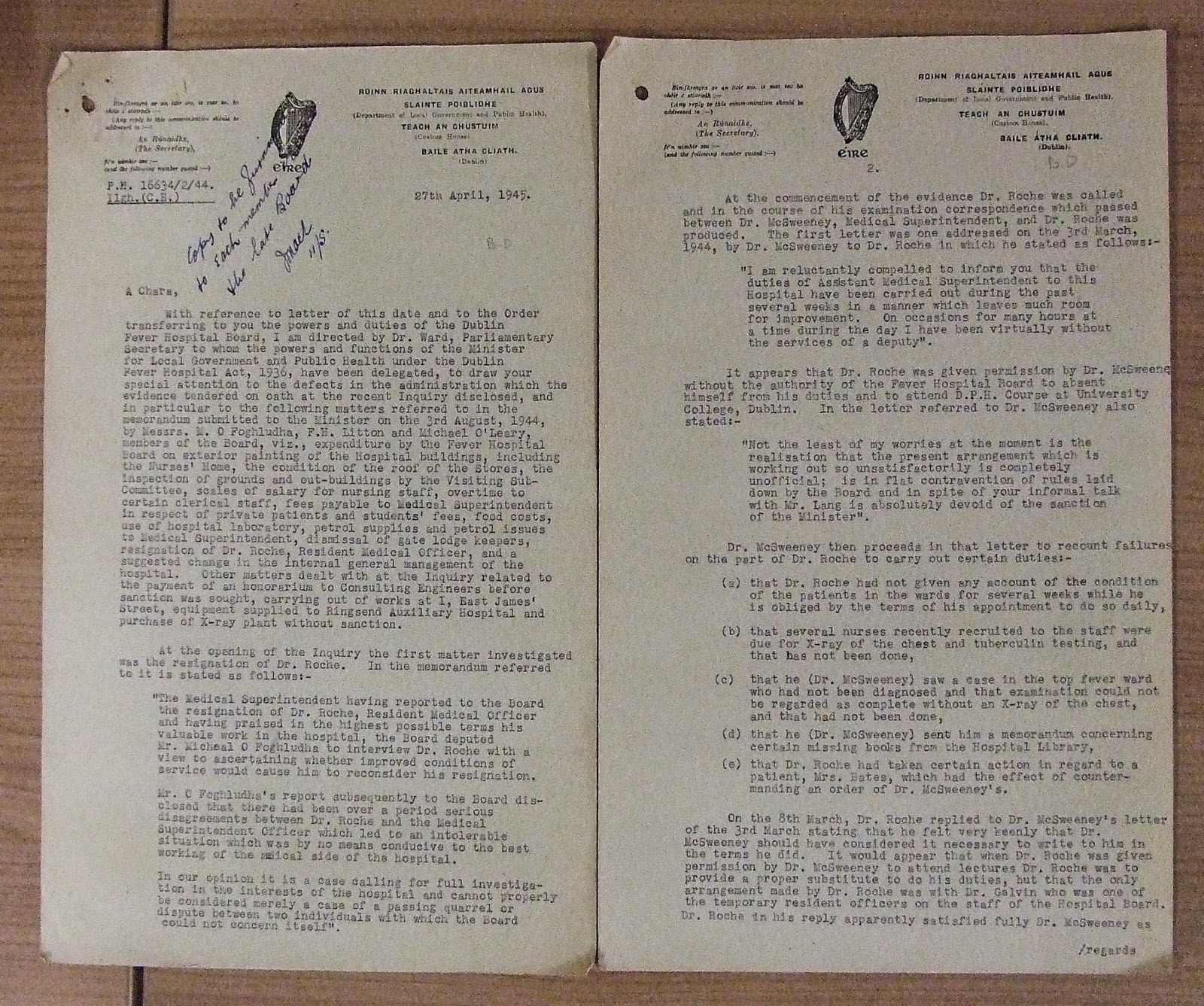 |
| Pages from a file relating to a Sworn Inquiry into alleged malpractices in Cork Street Fever Hospital (CSFH/8/2) |
Finally, a small series consists of records
relating to Cork Street’s governing
statutes and legislation, and includes copies of its Charter and By-Laws
and of the Dublin Fever Hospital Bill, 1936, which transferred management of
the hospital from a voluntary managing committee to a municipal board.
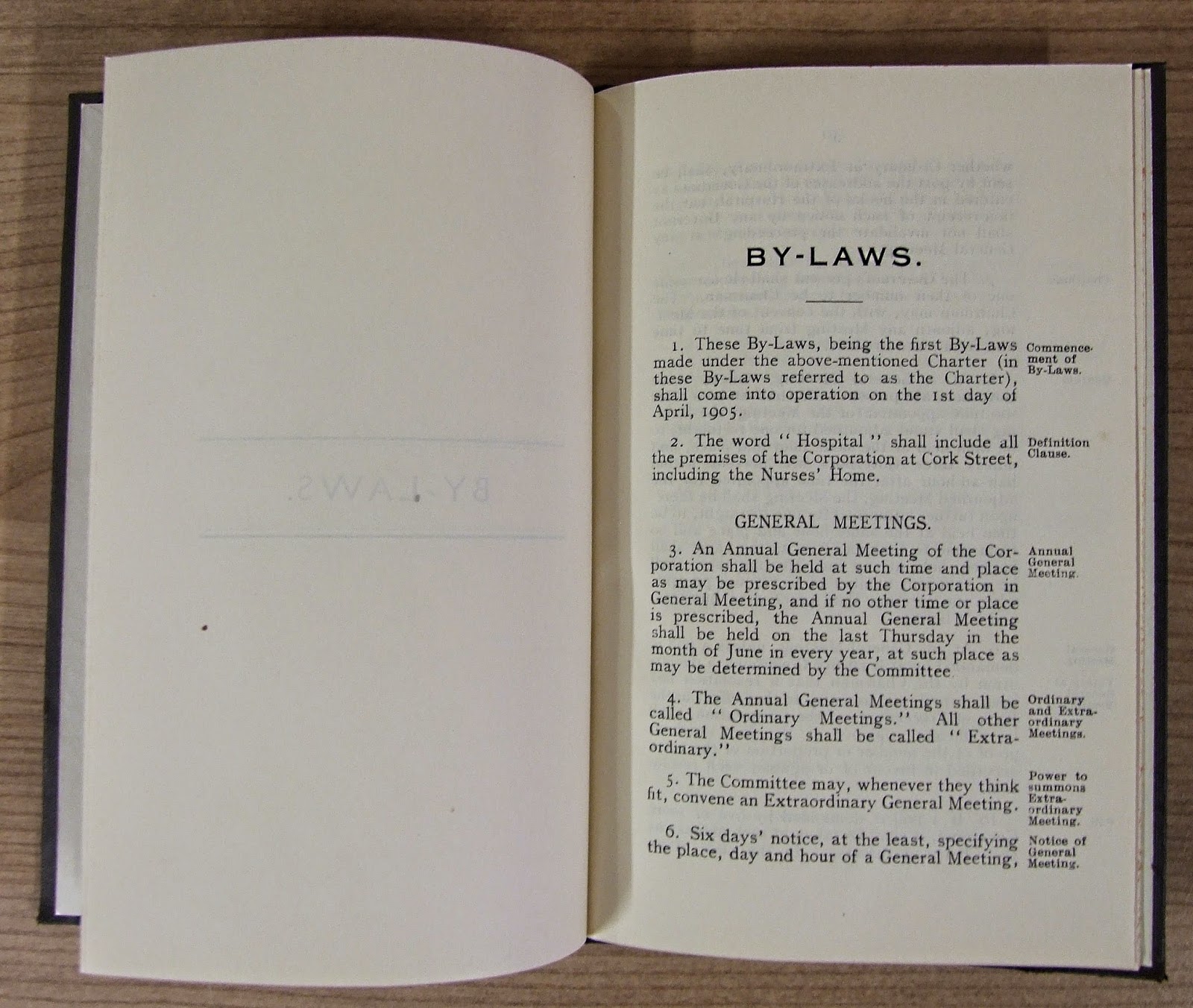 |
| First page of the by-laws of Cork Street Fever Hospital, in the governing statutes and legislation series (CSFH/6/1) |
Sensitive records, such as those in
which patients and members of staff are identifiable, are subject to closure
periods in line with Data Protection legislation. Records which are less than
30 years old are also closed in line with the National Archives Act.
The archive of Cork Street Fever
Hospital and Cherry Orchard Hospital have much research potential for
nineteenth- and twentieth-century medical and social history. If you have any
queries about the collection, contact heritagecentre@rcpi.ie
Fergus Brady,
Project Archivist